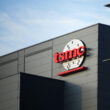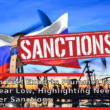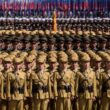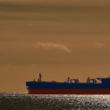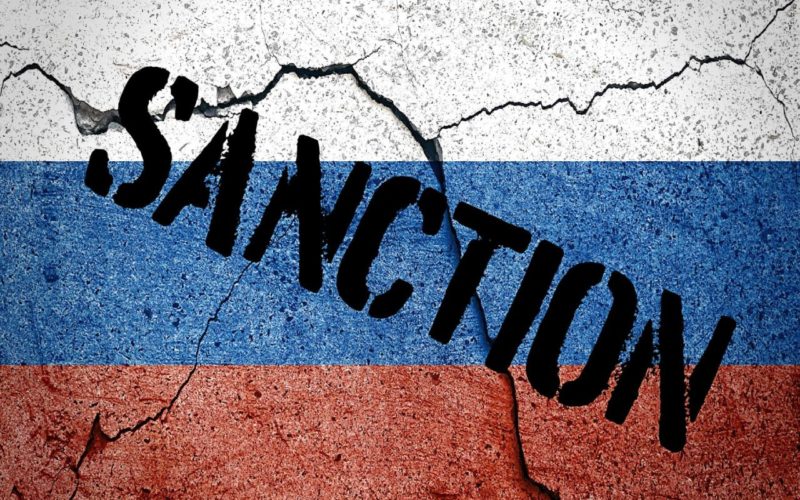The European Union approved a new package of sanctions against Russia. In particular, there are restrictions on imports, exports, and restrictions on oil prices, as the official EU Council website says.
Russia’s nuclear threats, the military buildup for its seven-month war in Ukraine, and the announcement of the annexation of some captured Ukrainian territories all served as main motivations for the EU to take action.
The EU Council voted to impose a new set of economic and individual sanctions against Russia due to its increasing war of aggression against Ukraine and the unlawful annexation of the Donetsk, Luhansk, Zaporizhzhia, and Kherson regions of Ukraine.

The agreed package consists of many harsh measures aimed at increasing pressure on the Russian government and economy, reducing Russia’s military power, and making the Kremlin pay for the sharpest rise in hostilities.
The measures, which aim to align the EU with the US, include tighter restrictions on trade with Russia for steel and IT products as well as an oil price cap for Russian maritime petroleum exports to third nations through European carriers.
Additional targets for the sanctions include members of the Russian defense ministry, those taking part in Moscow’s ad hoc annexation votes in occupied eastern Ukraine, and those engaging in sanction-evading activities.
High Representative for Foreign Relations and Security Policy Josep Borrell said: “This new round of sanctions against Russia shows our determination to put an end to Putin’s war machine and counter his most recent use of fake “referenda” and illegal annexation of Ukrainian territory. We are putting further pressure on Russia’s military economy, reducing its import and export capabilities, and moving quickly to break our dependence on Russian energy. We are also going after the people who illegally annexed Ukrainian territory. Ukraine may rely on the EU for as long as it takes.”
The package establishes the legal framework for a price cap on Russian oil being transported by sea to third countries as well as additional restrictions on the shipping of crude oil and petroleum products to third nations.
As of December 2022 or as of February 2023, it will be illegal to provide maritime transport, technical support, brokering services, financing, or financial assistance connected to the marine transport of crude oil or petroleum products that are produced in or exported from Russia. If the oil or petroleum products are purchased at or below a pre-established price cap, the price cap derogation would permit the provision of the transportation and these services. As of the date the Council unanimously decides to enact the price cap, EU vessels will no longer be permitted to provide maritime transport for such products to third nations. After Russia’s illegal invasion of Ukraine raised energy prices worldwide, the price cap will significantly reduce the income Russia receives from oil sales. The cap on oil prices can help keep the price of energy around the world stable.
In terms of commerce, the EU is extending the import restriction on steel goods made in or exported from Russia. Additional import restrictions are also put in place for items like wood pulp and paper, cigarettes, plastics, cosmetics, and materials used to make jewelry, like stones and precious metals, which collectively bring in a sizable amount of money for Russia. Additionally, there will be limitations on the export, supply transfer, and sale of other commodities utilized in the aviation industry.
In addition, the package approved today includes:
– the reprimanding of people and organizations involved in planning unauthorized “referenda,” defense industry lobbyists, and well-known people spreading falsehoods about the war. To include the option of pursuing those who aid in the circumvention of EU sanctions, the Council also resolved to expand the listing criteria on which individual designations can be based.
– the expansion of the list of products that may help Russia expand its military and technological capabilities or its defense and security sector. Certain electronic components, additional chemicals, and products used for the death penalty, torture, or other cruel, inhuman, or humiliating treatment will now be included.
– a ban on the sale, supply, transfer, or export of civilian guns, their vital parts, and ammunition, as well as on military and paramilitary equipment, replacement parts, and vehicles.
– prohibiting citizens of the EU from serving in any leadership capacities on the boards of any Russian state-owned or -controlled legal persons, companies, or bodies.
– the addition of the Russian Maritime Shipping Register, a 100% state-owned organization that carries out operations related to the classification and inspection, including in the area of security, of Russian and non-Russian ships and crafts, to the list of state-owned entities that are subject to the transaction ban.
– a complete ban on providing custody, wallet, or account services for crypto assets to Russian citizens or persons, regardless of the overall value of the crypto assets.
– The embargo on offering Russian architectural and engineering services, as well as IT consulting and legal advice.
The Council also decided that the non-controlled areas of the oblasts of Zaporizhzhia and Kherson will now be included in the geographical scope of the sanctions that were implemented on February 23. This consists of the import ban on goods from the non-government-controlled areas of the Donetsk and Luhansk oblasts.
